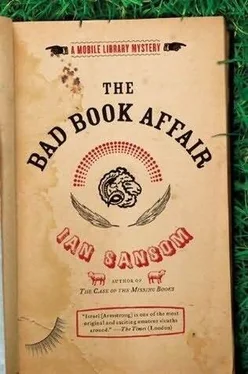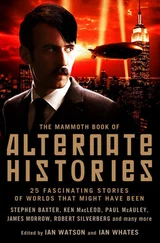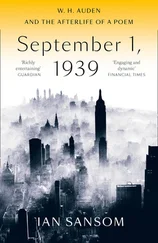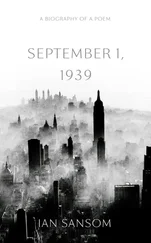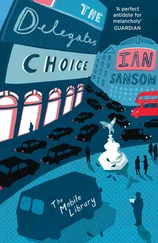Maurice Morris was taking her hand in front of a large mahogany desk and leading her to a seat. How old was he? Forty-five? Fifty? Fifty-five? It was difficult to tell. His hair was beginning to gray around the temples, but he was still attractive. Two words sprang into her mind. George. And Clooney. And then another two.
“So. Miss-it is Miss?”
“Yes.” She blushed through her blushes.
“Tell me about yourself. How long have you been with the paper?”
Within ten minutes Veronica seemed to have told Maurice Morris her entire life story-her hopes, her dreams. She told him all about growing up in Tumdrum, the daughter of the owner of the grocery store, how she’d worked there helping her father after her mother had died, and had given up her dreams of going to university in order to pursue a career in journalism, which would allow her to assist her father. He smiled serenely and nodded. It was like talking to her father, except Maurice was better looking, with white teeth and hair and no paunch.
“Well, let me wish you all the best in your career,” said Maurice Morris, with the tone of someone wrapping up the interview.
“Actually, sorry. I do have some questions.”
“I’m sure you do,” he said.
There was a knock at the door and Highsmith entered.
“Time’s up,” he said.
“Oh, no. What a shame!” said Maurice. “That’s our time up. I’m so sorry.”
“But I haven’t had time to ask all my questions,” said Veronica. “For the profile.”
“Ah.”
“I think we maybe need a little more time together, don’t we, Veronica?” said Maurice. “Could you give us five minutes, Mickey?”
Mickey nodded and silently exited.
“Thanks so much,” said Veronica.
“No problem,” said Maurice Morris. “You’ve some more questions?”
“Yes, I wanted to ask you about your daughter, if that’s OK?”
“Well, yes.” Maurice looked down. Tears sprang instantly to his eyes.
“This must be a very difficult time for you,” began Veronica.
“Yes. It is. It’s…awful. It’s very difficult for me to talk about this. Particularly with the election so close. I don’t want the focus to be on me. I want the focus to remain on policy issues.”
“Of course,” said Veronica. “But your daughter’s disappearance must be a terrible worry and a burden to you.”
“Yes, it is.”
“I wonder if you wouldn’t mind telling me a little bit about your daughter and your relationship with her?”
Which Maurice Morris gladly did.
“That’s all now,” said Highsmith, reappearing five minutes later.
“That’s such a shame,” said Maurice. “Perhaps we could meet up for an informal chat,” he said, “over coffee?”
“Well, that would be…”
“Here’s my card,” said Maurice. “Call me anytime. If there’s anything I can help you with.”
Israel managed to get an early morning cancellation with a doctor in Tumdrum’s state-of-the-art health center out on the main road going up toward Coleraine.
The health center looked like something designed by dreamy Finns and built by Australians in a screaming hurry, a kind of cross between an Alvar Aalto and a woolshed in New South Wales, with a lot of ambitious angles and exposed wood and steel frames and corrugated iron cladding in bright blue and red, and with a big black roof like a butterfly straining to take off from its mounting board. Yard upon yard of thick red plastic guttering spewed rain into downpipes, as if the building itself had realized its mistake and had slit its veins and was slowly bleeding to death into Tumdrum’s bitter ground. There was what appeared to be a cattle ramp-a long, high-sided yellow platform bridge, the yellow of an old French postal van, like a long, sickly unrolling tongue glistening with saliva-leading from the car park to a deep, shady veranda stretching along the whole front of the building, set with low steel benches on which sat disconsolate smokers, people shamed and condemned by their own families and contemporaries, who sat inside staring out at the backs of them through the floor-to-ceiling windows. The building would probably have worked in Helsinki or Sydney, and may even have won prizes, but in Tumdrum it was a sick joke, as if an architectural prankster had dumped it off the back of a truck and driven away at high speed: the iron parts were rusting, the wood cladding was rotting into a sickly shade of green, the miserable phormiums planted up all around it looked as though they’d been chewed at by hungry hounds, and the acres of glass were not a good idea in Ireland, thought Israel, as he sat and waited to see the doctor, the whole building thrumming with the sound of rain and the big windows streaked as if they themselves were downpouring. He closed his eyes and tried to imagine that he was elsewhere.
It didn’t work.
Eventually, he was buzzed through to his appointment with Dr. Withers.
“Yes?” asked Dr. Withers, as though Israel had arrived unexpectedly to clean the room.
“Dr. Withers?”
“Yes?”
“I’m Israel Armstrong.”
“Israel Armstrong,” repeated the doctor. “I see.”
Israel hovered nervously by the door.
“Come in and sit down.”
Israel came in and sat down, and “Yes?” said Dr. Withers again. He was hoping for a hiatus hernia. “How can we help you?”
“I need a sick note,” said Israel.
“I see,” said Dr. Withers. They all needed sick notes. “What seems to be the problem?”
Israel listed his symptoms: exhaustion, vomiting, weight loss, sleeplessness, anxiety.
“Yes,” said Dr. Withers, disappointed, when Israel took a pause for breath. He eyed the Jack B. Yeats print he’d recently rehung on the other side of the room, to give him something interesting to ponder when pretending to listen to his patients. He had an original Paul Henry at home. He’d not had a hiatus hernia for a while.
Withers was a jowly man with a funereal manner who had pure white hair and wore dark suits, and who had his glasses-little half-moon glasses-on a little golden chain around his neck, making him look more like a magistrate or a mayor than a man of medicine. He looked like a hanging judge. With his glasses off you could see clearly his hard, unforgiving eyes, eyes that had all the assurance of a man who was comfortable in his knowledge of his own body, and who was more than happy to point out the faults in others’. At weekends, it was said, Dr. Withers played the bassoon and wore a hat, and cultivated his interest in art and in po etry and in music, and attempted to bully his obstinate and determinedly independent wife, a woman who preferred the Beatles to Beethoven, and who was unimpressed by her husband’s moods and his Wagner. They often visited Dublin, the Witherses, and they had a second home in Donegal; they were perfectly self-satisfied. Dr. Withers was not the kind of man you could imagine either young or happy, and his patients provoked in him only the occasional pity, at best.
“They’re my symptoms,” said Israel.
“Yes,” said Dr. Withers.
“I’ve not been feeling very well.”
“Not very well.” None of them took any responsibility for their lives, that was the problem. Working classes. Middle classes. They were all the same. “I see. And how long have you been off?”
“I was off for a week. My boss says I need a sick note.”
“I see. Any other symptoms. Or is that it?”
“I think that’s it,” said Israel, wishing he had something astonishing up his sleeve. “Actually, no,” he added. “I suffer from migraines.”
“Migraines,” said Dr. Withers, unimpressed. Migraines. Dispensing for migraines was not what you became a doctor for. “And what are your migraine symptoms?”
Читать дальше
Конец ознакомительного отрывка
Купить книгу
